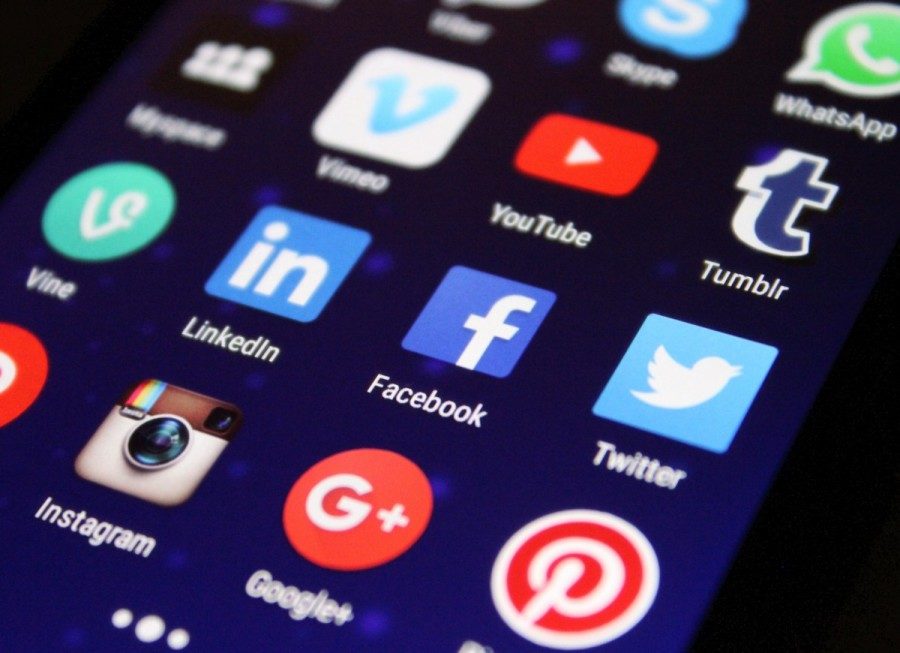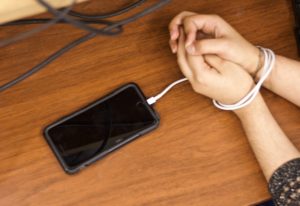Cellular (mis)communication
The adverse effect of technological progress
April 19, 2018
Abby Gedeon is a freshman at Starr’s Mill High School. She wrote the following op-ed article as part of a class assignment in Brandon Kendall’s 9th grade Literature and Composition class.
You walk around town with earbuds in. You’re blasting your music as loud as you can, hoping that people won’t stop to have a conversation. If anyone tries to talk, you just point to your earbuds and continue walking.
To you this just seems like an average day, not wanting to socialize or interact. The problem is what you least expect — technology. One of the main uses of technology is communication, but technology is starting to do the opposite.
Social and communication skills are the things that are being affected the most by technology. Most teenagers would rather spend more time texting and seeing what people send on Snapchat, than having face-to-face conversations and socializing with people.
This lowers the social and communication skills needed to get a job and succeed in school. Teens will start to have trouble talking to new people in real life and won’t be able to socialize with them.
According to CNN, an average of nine hours are spent on phones and social media for most teens. This shows that teens seclude themselves for about nine hours a day, which lessens the rate of actual conversations.
An article on Forbes online states that “those who reported feeling most alone currently are young people under the age of 35, the most prolific of all social networkers.”
Sherry Turkle, in a New York Times article, explains that a high school sophomore would rather talk to an artificial intelligence about dating than having a conversation with his dad about it.
The New York Times opened up an online survey to students 13 and older about this topic, and the answers varied. One student said, “Technology makes us feel more alone because people are too focused on what’s on their screen than real life. Most teens are anti-social, so they communicate only through texts and social networks. A lot of teens don’t know how to communicate to people face to face because they are too focused on their phones and they haven’t learned to do that.”
Many people will disagree with this claim and say that it’s not the technology that is causing teens to feel lonlier.
From the New York Times survey, one student responded, “I don’t think it’s necessarily making us more alone, it just depends on the person and their interests. Some people enjoy sitting and talking and being social, but others enjoy the internet and technology in general. I believe it just depends what you are into.”
It is true that people can choose to not be social. However, always being on technology causes you to seclude and isolate yourself without even knowing.
So, think about the next time you plug in headphones to block off upcoming conversations, and ask yourself this. Is technology making me lonelier?







